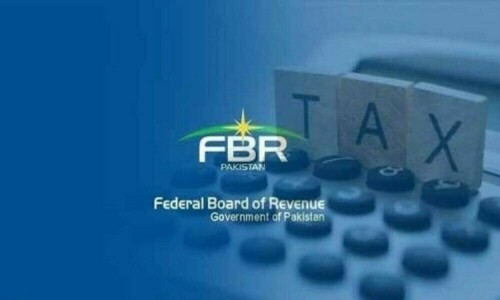FBR Expands Tax Base by Monitoring Service Sector
In a decisive action aimed at expanding the tax base and rectifying persistent imbalances within Pakistan’s taxation system, the Federal Board of Revenue (FBR) has put into effect Section 175C of the Income Tax Ordinance, 2001.
This regulation empowers Inland Revenue Officers to be present at business locations to oversee production, inventory levels, the distribution of goods, and significantly, the provision of services, particularly by integrated businesses operating within the largely unregistered service industry.
Comparable stipulations for enforcement under Section 175C have previously been in place under the Sales Tax Act, 1990, and the Federal Excise Act, 2005, concerning goods. This action simply extends parity to services, guaranteeing equitable and all-encompassing monitoring across all sectors, and combating the informal economy, which is thought to represent more than 30% of the recognized GDP.
The initiative addresses mounting public dissatisfaction with the rising tax burden on salaried individuals and officially documented manufacturers. By improving the recording of transactions within the high-potential service sector, the FBR intends to generate fiscal flexibility that could enable potential reductions in personal income tax rates for salaried employees. Conversely, the service sector, which accounts for approximately 60% of the GDP, continues to be largely undocumented, with over 70% of businesses allegedly unregistered, resulting in substantial tax revenue losses.
The focus of this section is specifically on high-income, yet under-documented, businesses such as eateries, lodging establishments, guest houses, wedding venues, recreational clubs, package delivery and freight firms, cosmetology centers, medical clinics, hospitals, diagnostic centers, fitness centers, currency exchange services, photography studios, and various traders.
Reports indicate that certain private medical facilities are charging between Rs 100,000 and Rs 200,000 daily for inpatient room accommodations – costs surpassing those of even five-star hotels. A significant number of these organizations are allegedly underreporting earnings and flouting tax regulations, thereby eroding public confidence and depriving the government of vital funds needed for essential social programs and infrastructure projects.
The FBR has restated that the objective of this legislation is to ensure that those who offer services and benefit from Pakistan’s thriving urban and semi-urban markets fulfill their legal tax obligations.
The FBR is encouraging all relevant parties to work alongside tax authorities and uphold compliance. It states, “Collectively, we have the ability to foster a more equitable and resilient fiscal framework—one that does not penalize those who are honest while rewarding those who fail to comply.”



Comments (0)
No comments yet. Be the first to comment!
Leave a Comment